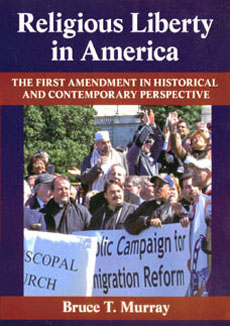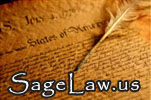{COMPANY_NAME}
 |
|
Links
|
| Does religious affiliation predict judicial outcome? | |
Dear {GENDER} {LAST_NAME}: Judge Sonia Sotomayor's historic appointment to the U.S. Supreme Court marks a first for an American Hispanic. But in terms of religious affiliation, Sotomayor finds herself among the majority on the Court: Six out of the nine justices on the Court are Catholic. Although Sotomayor's degree of adherence is not well-established – she reportedly “attends church with family and friends for important occasions” – how might her Catholic upbringing influence her rulings on moral issues such as abortion and the death penalty? 
The University of Massachusetts Press book, Religious Liberty in America: The First Amendment in Historical and Contemporary Perspective by Bruce T. Murray, examines other justices' rulings on these issues, and discusses how religion may – or may not – influence their reasoning. Murray focuses particularly on the previous two appointees, John Roberts and Sam Alito – both Catholics, and their rulings on abortion and the death penalty. Read some of Murray's findings here. In addition to analyzing the Court, Murray surveys the development of religious pluralism in America for the past 400 years – from early colonial times to present controversies, such as the mixing of religion and politics, battles over religious symbols in the public square, the “culture wars,” immigration and faith-based initiatives. Religious Liberty in America was selected by Choice – a publication of the Association of College and Research Libraries – as an “Outstanding Academic Book.” It has received favorable reviews in numerous other publications, including most recently the Catholic Historical Review:
Religious Liberty in America is available at numerous university libraries, and it may be purchased from the University of Massachusetts Press. The author is scheduled speak on the subject of religion and politics during a series of lectures at the United University Church on the USC campus, Oct. 6, Oct. 13 and Oct. 20. |

